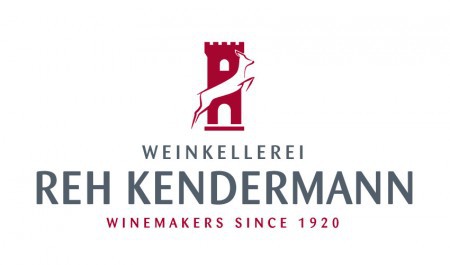
Part 2: 'Mediterranean wine' - A goldmine of untapped potential?
Yesterday, we began looking further into last week's Vinisud 2017, when the saleability of Mediterranean wines as a category was promoted to visitors.
Yesterday, we began looking further into last week's Vinisud 2017, when the saleability of Mediterranean wines as a category was promoted to visitors.
Building on the potential on social media and the positive associations many Brits have with the countries of the Mediterranean, there are also opportunities for retailers and producers to create Mediterranean wine brands - "I Heart the Med", Sarah Abbott MW suggests - or even cross country blends.
One thing to note is that while the idea of 'Mediterranean wine' as a category hasn't yet crossed over, winemakers from Med countries have been using the phrase internally for some time - interesting when one of the criticisms that surround a Mediterranean wine category is the issue of lumping together such diverse regions.
As one recent Harpers trip highlighted, even in fringe-countries such as Lebanon, winemakers refer to themselves and their offering, as "the highest vines in the Med," proud of the benefits offered by the Mediterranean sun, elevation and long ripening periods.
While wine continues to lose share to craft beer and spirits in the UK, there is an argument for pursuing broader categories like 'the Med,' as they present opportunities to break down barriers and create new accessible entry points for the less initiated - and younger, perhaps? - wine drinker.
In the end, it could be the market - not producers or marketing departments - who help this concept to cross over into the mainstream.
As Abbott says - all it could take is a hashtag.
"The marketing idea that you own your brand is over," Abbott added. "Those days are gone. A brand is what your consumers make it. For consumers who love France and have holidayed all over France, talking about 'French wines' is useful to them.
"The mind set of the audience is what matters. Wine can be both Mediterranean and French and good example of Chardonnay."
These flexible descriptors are already widely used in the wine industry, depending on which wine is known for what, and how they best resonate with consumers.
How well the Mediterranean label fits, will vary depending on the region.
"Mediterranean concepts like healthy and aspirational lifestyles, holidays, relaxing environments, good food, olive oil might prove useful in some instances, not others, [and the usefulness of these] will vary depending on price points, consumer segments, types of wines, and markets," said Jean-Philippe Perrouty, director of Wine Intelligence, who conducted research on production and exports of Mediterranean wines for Vinisud 2017.
He gives the example of 'Provence' as a wine region which can easily - and already does - use Mediterranean concepts.
Equally, Italy came out strongly in a separate Wine Intelligence survey which asked UK consumers to rate source-countries in terms of perception.
The home of Prosecco and Montepulciano rated highly thanks to its positive associations such as aspirational lifestyle and food.
"Jamie's Italian is a very good illustration of how Italy can be a powerful concept in itself," Perrouty added.
Spain, however, is more problematic.
"For Spain, I wonder to what extent it would be useful. For the sake of the argument, why would Rioja or Ribera del Duero would want to create an association with the Mediterranean, as the link between the Med and these vineyards is probably weak in consumers' minds.
"Spanish strengths in export markets are clearly based on other success factors such as production and vineyard structure, quality categories such as reserva and gran reserva, mainstream brands, varietal association and the image of Spain," said Perrouty.
As we can see, case-by-case categorisation has been working for some time.
But moving towards a union under one banner throws up problems.
"At the moment, it's a bit of a free for all," Abbott observed.
"But I think that's promising rather than problematic. Organisations, importers, marketers make their own definition of what constitutes Med wines."
She highlights multiple initiatives already in existence, including a marketing program which promotes 'Southern Europe/Mediterranean Wines'.
This program includes Bulgaria, which isn't on the Med, but has been influenced by Mediterranean trade routes.
Then there is also the promising connection with Unesco, which has designated the Mediterranean Diet as 'intangible heritage'.
Abbott points out that this could throw up some interesting possibilities, perhaps tying in charitable donations for bottle sales - although she admits such marketing deals aren't straightforward.
"I think that any innovations in how we communicate wine are welcome. A wine purchase is an emotional purchase, and finding evocative ways to communicate wine through lifestyle, history, diet and culture are to be welcomed," she concluded.





